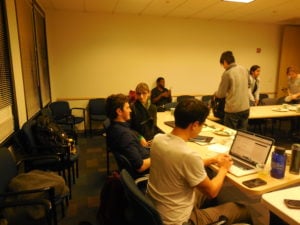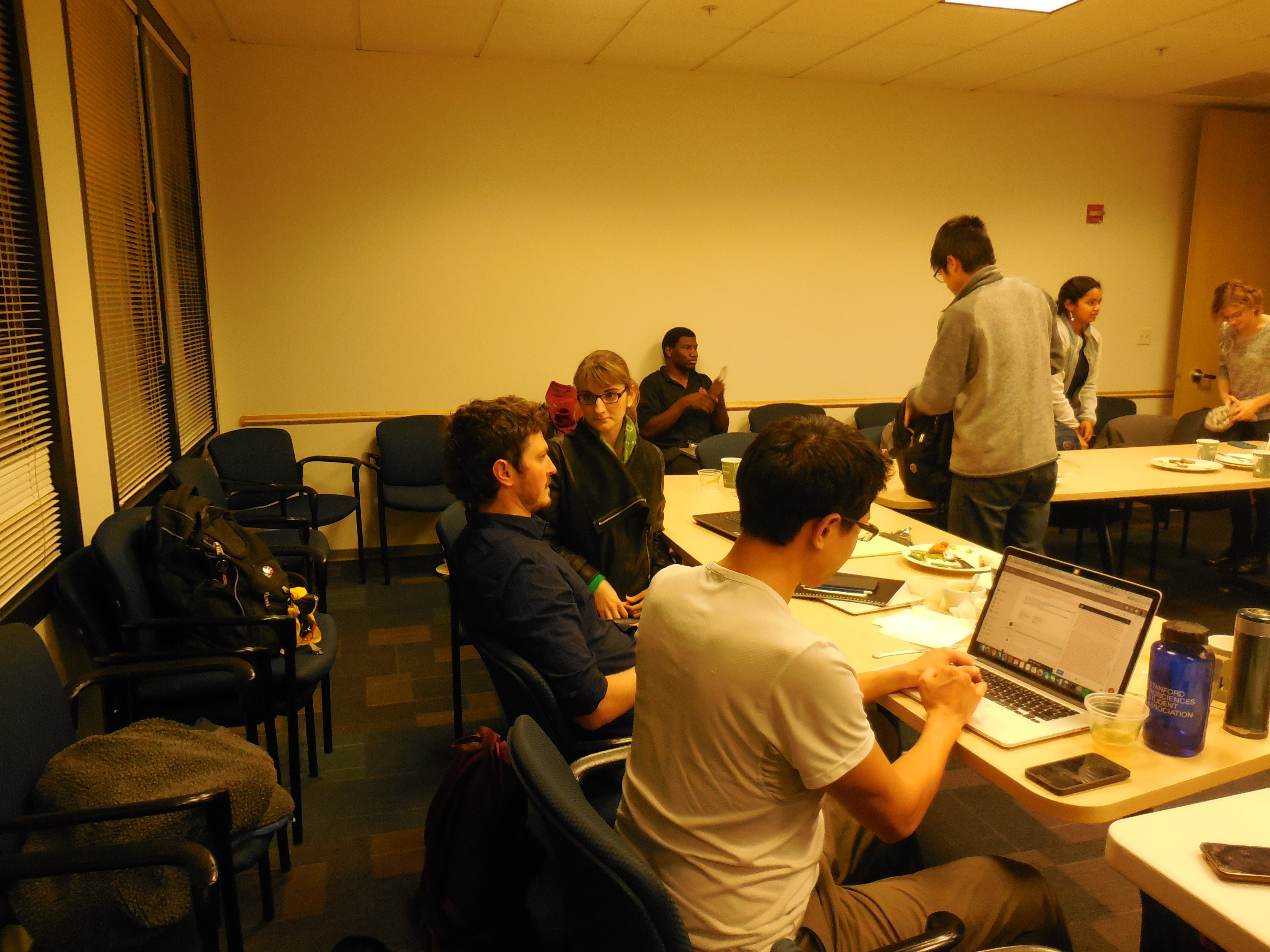The Undergraduate Senate and the Graduate Student Council held their first joint meeting of the year to consider urging the University to use the program Callisto to address sexual assault. The meeting also discussed how the ASSU can increase the use of compostable products and boost turnout in student elections.
Senate Chair Shanta Katipamula ’19 introduced a bill that would urge the University to conduct a one-year trial using the program Callisto. Katipamula said that the website would allow survivors of sexual assault to report incidents 24/7 and would allow survivors to write down what happened without requiring them to immediately submit their reports. According to Katipamula, less than 3 percent of Stanford’s sexual assault victims report their attacks. Katipamula expressed concern that many perpetrators of sexual assault may repeat again. Callisto offers a an optional matching feature, where a report is only submitted if another report cites the same suspected perpetrator of sexual assault. However, the website would tell the University how many unsubmitted reports there were, and the information would be preserved so the timeline would remain intact for future cases.

Katipamula said that the University of San Francisco and Pomona have already conducted trial periods with Callisto. Katipamula praised Callisto for working with sexual assault survivors in the design of the application.
Katipamula said there was no negative feedback from other schools the ASSU had contacted. While she did acknowledge concern that there would be an opportunity for false reporting, Katipamula also pointed out that false reporting would remain a concern regardless of the reporting method used.
According to Katipamula, the SARA office is also evaluating the Callisto program.
The ASSU legislative bodies also considered potentially creating a vending machine for emergency contraception such as the Plan B pill, which might be subsidized to a less-than-market price.
Katipamula then began a discussion about how the ASSU could increase the use of compostable goods. She said that the Undergraduate Senate was interested in promoting compostable bags and that the GSC wanted to promote compostable utensils.
Senator Cenobio Hernandez ’17 said that the Senate wanted to make compostable bags available for groups that received funding for event food above $40. Groups receiving more $225 for food would be asked to purchase a compostable bin. Students for a Sustainable Stanford (SSS) would provide a one-page flyer with instructions for both bags and bins. According to Hernandez, the Undergraduate Senate also wanted to support the reuse of leftovers as well as training on environmental sustainability.
GSC member Isa Rosa ’18 said that the GSC was interested in providing vouchers for groups to pick up compostable event materials. Rosa said that they imagined a pickup location rather than a dedicated store and suggested that Stanford Student Enterprises might be a suitable location.
Rosa and Hernandez resolved to work together in the future on the compostable goods issue.
Finally, a representative from the ASSU Elections Commission reported that certain groups, such as undergraduate seniors and business students, voted at disproportionally low rates in their respective undergraduate and graduate elections. The representative announced plans for get-out-the-vote efforts such as flyering, candidate mixers and visits to community centers. The Elections Commission also intends to work with campus media organizations to boost its social media presence. The actual ballot website will be migrated to Qualtrics, and tests will be conducted on the new system soon.
Contact Caleb Smith at caleb17 ‘at’ stanford.edu.
